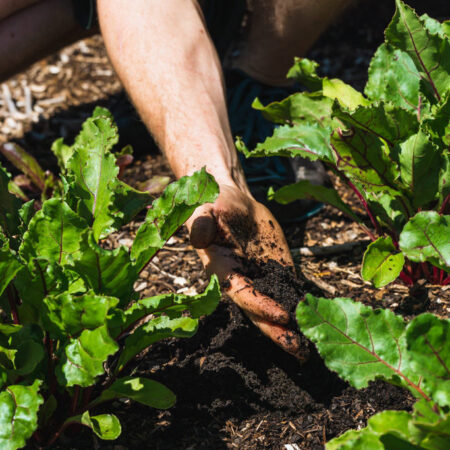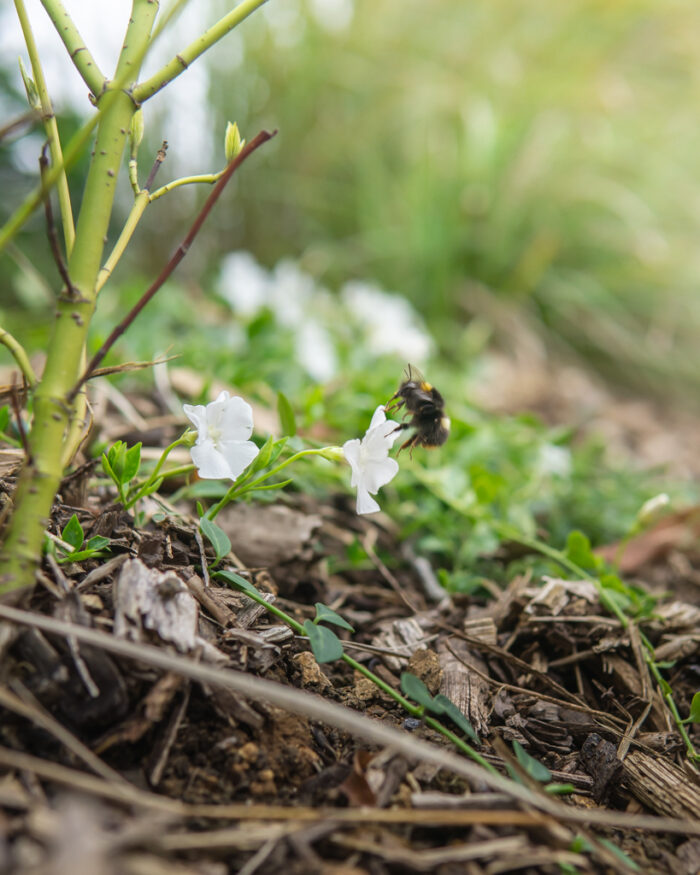Healthy Soil, Happy Vegetables. Simple Ways That We Keep Our Market Garden Pest Free.
Healthy Soil, Happy Vegetables. Simple Ways That We Keep Our Market Garden Pest Free.
Practising organic gardening can be tricky when there are any number of pests that want to enjoy your home-grown produce. However, there are plenty of natural ways to keep your vegetables as bug free as possible.

Why don’t we use insecticides?
Across the entire 64 acre estate at Combe Grove, the Team practice permaculture and regenerative agriculture and follow Soil Association standards, paying particular attention in the market garden. Following Soil Association standards means that we do not use pesticides on our produce but do understand the benefits of some insect life. Most insecticides, organic or otherwise do not discriminate between good and bad insects, meaning that not only are you deterring the unwanted ones but the beneficial insects too. Even those we might not want on our vegetables are part of an important ecosystem. For example, the cuckoo population has declined by 70% in the past 25 years. This is due in part to a decline in caterpillars which are no longer available because of the mass spraying of crops.
Integrated Pest Management
IPM is the use of a combination of methods to control the risk of pests and diseases damaging crops. By relying on just one method of control crops are made vulnerable. Pests are very quick to adapt to their environment and one method is not usually successful for long. The pesticide industry has observed pests adapting quickly to become resistant to chemicals and once this happens crops are quickly decimated. At Combe Grove we use a combination of cultural controls, by attracting natural predators, planting carefully, using physical barriers and keeping a clean and tidy garden. By using this combination, the Estate Team continually improve the quality, health and wellness of the environment, which helps to produce healthy, seasonal, nutrient-rich food.
Proper Planning and Preparation
It may sound dull, but planning a garden is essential. Here, the most problematic pests in the market garden are deer, rabbits and badgers, hence the need for a fence surrounding the garden itself. Not only this, but covering crops with mesh protects from Butterflies laying eggs and other potential crop-damaging pests such as Leaf Miner and Carrot Root Fly. These can be expensive but can be can reused year after year and are well worth the investment. Weeding and removing crop residues such as leaf litter is also essential as these can harbour pests and diseases. Once on top of them, the routine jobs can easily be taken care of each week.
Companion Planting
Companion planting is another natural way to confuse and deter pests. Companion planting is the method of scattering other plants along with a crop. This is nothing new- people have been using calendula as a sacrificial plant for many generations. All orange plants attract pests so by planting these, naturally draws pests away from the real crop. Calendula is also edible so if it thrives, you have another crop to harvest. Other ways to confuse pests are with strong-smelling herbs. Their strong scent repels most insects. For example, Aphids tend to stay well away from chives and coriander and flies seem to be deterred by basil and rue. Also, by planting a variety of crops of differing colours, textures and heights pests are less likely to find the one they’re looking for.
Increasing Habitat
The Team work hard to increase natural habitats across the estate in order to maintain the natural balance and attract natural predators to keep our market garden pest free. Nothing gets through slugs like a hedgehog. Maybe think about leaving a pile of logs at the bottom of your garden. Put in a pond, no matter how small. Install a hedge rather than a fence. Before long, these will be brimming with life, feeding ecosystems, increasing birdlife and helping your garden stay healthy without having to work too hard.

Healthy Soil- The No Dig Method
Instead of lots of digging and therefore hard work, we choose to concentrate on the health of our soil. Healthy soil makes for a healthy plant, more able to fight off pests and diseases themselves. The nutrition in the soil makes its way into the vegetables and then into us. There is no better way to develop the health of our soil than through the no-dig method. This aims to create minimal disturbance of the soil allowing that natural processes to be preserved. No dig means adding organic matter to the soil and then letting the worms do the rest of the work, bringing this matter further down into the topsoil. This feeds the microbiome which in turn produces nutrients that reside in the soil, waiting to be taken up by the vegetables. Another benefit of not disturbing the soil is protecting the mycelium, a network of fungi below ground which help the plants to exchange nutrients between themselves. And by not exposing the soil, moisture is retained, reducing the need for watering.
We hope that you enjoyed this post on ways that we keep our Market Garden pest free. Feel free to take a look at the Combe Grove Farm Shop, stocked with nutritious vegetables grown right here and head over to our Instagram for more photos.